Windows are not just a mere part of a house, but they also play a significant role in providing natural light, ventilation, and aesthetic appeal. However, to maximize their functionality, proper installation is of utmost importance. In this article, we will share seven essential tips you should know when installing windows in your home.
1 Install Aluminum Alloy Windows Instead of Steel-Core Plastic Windows
When choosing windows for your home, the material is the primary deciding factor. Currently, aluminum alloy and steel-core plastic windows are the two popular choices in the market. So, why should you prioritize aluminum alloy?
While steel-core plastic windows are more affordable, they come with several limitations. Plastic is prone to aging and deformation over time, which reduces the product’s lifespan and affects its insulation capabilities.
On the other hand, aluminum alloy windows offer superior advantages:
-
High durability: Aluminum frames are sturdy, bear loads effectively, and withstand impacts.
-
Insulation: They help maintain a cool environment during summers and a cozy atmosphere in winters while reducing external noise.
-
Design versatility: Aluminum windows offer a wide range of designs, colors, and styles to match diverse architectural preferences.
-
Longevity: Aluminum windows are built to last, resisting warping and termite damage.
If your budget allows, aluminum alloy is the perfect choice to enhance your living space. However, if you seek a cost-effective solution that balances durability and aesthetics, aluminum-clad wood windows are a worthy consideration. With natural or engineered wood, these windows offer a sophisticated, warm ambiance and superior insulation compared to steel-core plastic.
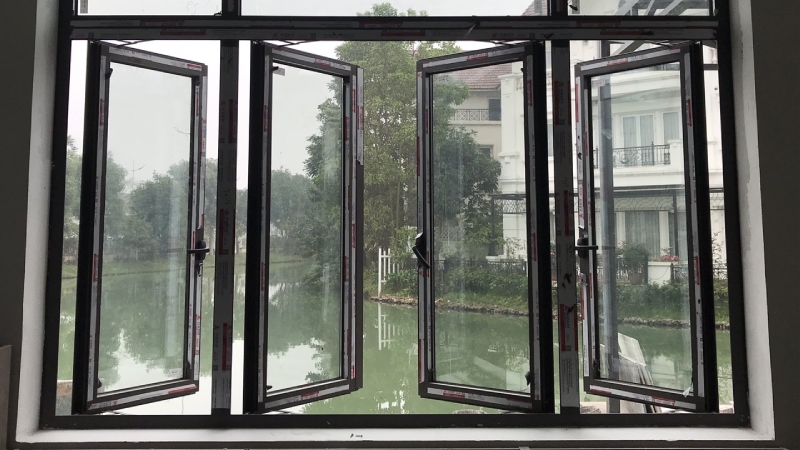 Install Aluminum Alloy Windows Instead of Steel-Core Plastic Windows
Install Aluminum Alloy Windows Instead of Steel-Core Plastic Windows
2 Choose Window Frames with a Thickness of Over 1.6 mm, Avoid Thinner Options
The thickness of window frames is a critical factor in determining their durability and load-bearing capacity. Thin frames are prone to deformation and warping over time, impacting the aesthetics and safety of your home. Therefore, opt for window frames with a thickness of 1.6mm or more.
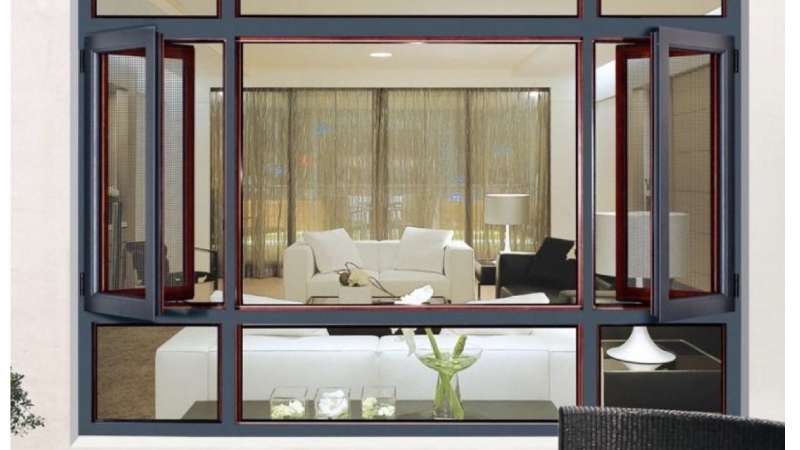 Choose Window Frames with a Thickness of Over 1.6 mm, Avoid Thinner Options
Choose Window Frames with a Thickness of Over 1.6 mm, Avoid Thinner Options
3 Install Tempered Glass, Avoid Regular Glass
For windows, tempered glass is the optimal choice due to its superior strength and safety features. When subjected to a strong impact, tempered glass shatters into small, blunt fragments, minimizing the risk of injuries. Additionally, it offers better sound and thermal insulation than regular glass, enhancing the comfort of your living space.
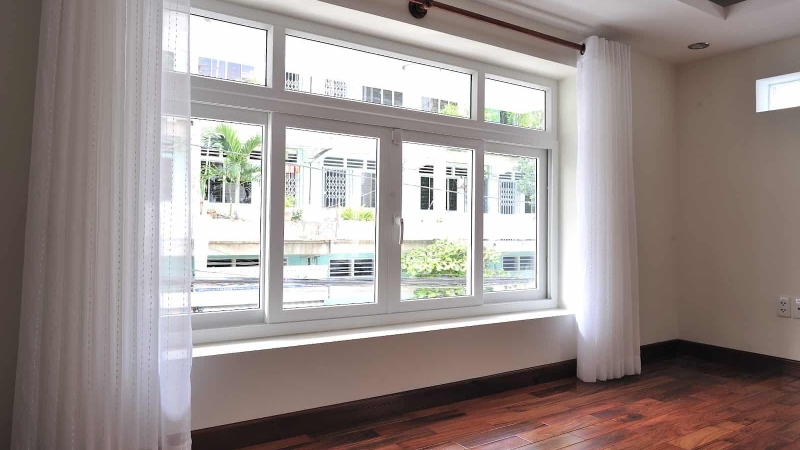 Install Tempered Glass, Avoid Regular Glass
Install Tempered Glass, Avoid Regular Glass
4 Opt for Multi-Pane Glass Instead of Single-Pane
While tempered glass is a prevalent choice for windows, multi-pane glass (usually double or triple-pane) offers enhanced safety and insulation.
Multi-pane glass is bonded together with PVB interlayers, providing several benefits:
-
Enhanced safety: In the event of breakage, the glass shatters into small, blunt pieces, reducing the risk of injuries.
-
Improved sound insulation: It minimizes external noise, creating a peaceful living environment.
-
Superior thermal insulation: It maintains a stable indoor temperature, reducing heat loss in winters and preventing outdoor heat from entering in summers.
Particularly if you reside in an area with significant noise levels or temperature fluctuations, multi-pane glass is the ideal choice for a comfortable and tranquil living space.
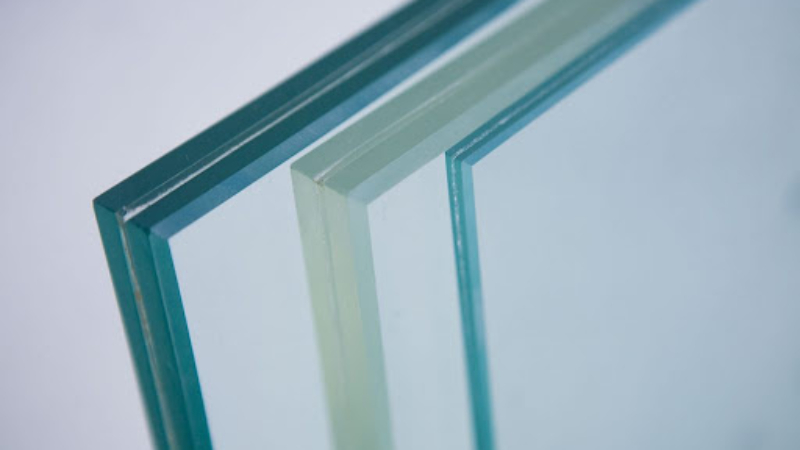 Opt for Multi-Pane Glass Instead of Single-Pane
Opt for Multi-Pane Glass Instead of Single-Pane
5 Use PA66 Thermal Break, Avoid PVC Thermal Break
The thermal break is a crucial component in windows, as it prevents heat transfer from the outside, keeping your home cool in summers and warm in winters.
Currently, PVC and PA66 are the two common types of thermal breaks available in the market. To ensure effective insulation and prolong the lifespan of your windows, opt for PA66 thermal breaks.
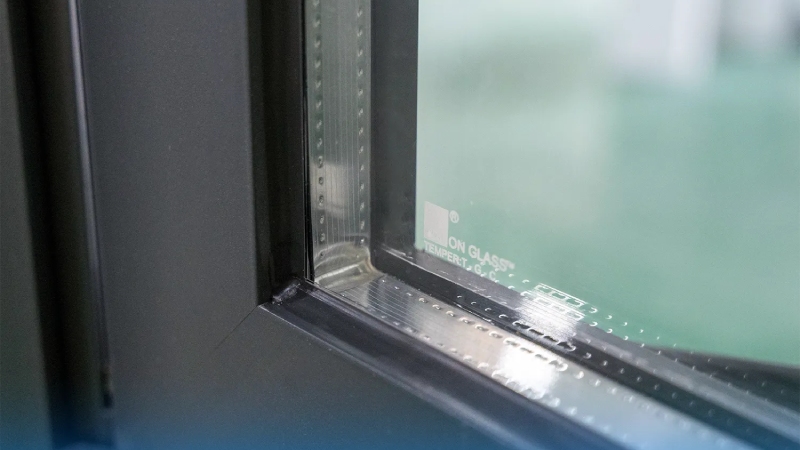 Use PA66 Thermal Break, Avoid PVC Thermal Break
Use PA66 Thermal Break, Avoid PVC Thermal Break
6 Invest in Quality Hardware, Avoid Substandard Options
Apart from the frame and glass, window hardware plays a pivotal role in determining the quality and longevity of the product. Choosing suitable hardware ensures a smooth, quiet, and comfortable user experience.
High-quality hardware enables seamless window operation, with effortless opening and closing, free from annoying noises. It also maintains the airtightness of the windows, preventing dust, rain, and insects from entering, thus keeping your living space clean and dry. Moreover, quality hardware extends the lifespan of the windows, reducing future maintenance and repair costs.
On the contrary, substandard hardware can lead to issues like difficulty in operation, jamming, and leaks, compromising safety and aesthetics.
 Invest in Quality Hardware, Avoid Substandard Options
Invest in Quality Hardware, Avoid Substandard Options
7 Opt for Reputable Brands, Avoid Untrusted Ones
When selecting windows, apart from considering factors like material, glass, and hardware, reputable brands in the market should be your priority.
Choosing a renowned brand offers multiple advantages. Firstly, you are assured of superior product quality due to their modern manufacturing processes and adherence to stringent quality standards. Secondly, you benefit from lengthy warranty periods, providing peace of mind during your usage. Lastly, you gain access to experienced consultants who can guide you in selecting the most suitable products for your needs and architectural style.
Conversely, opting for untrusted brands may lead to risks like subpar quality, lack of warranty, and monotonous designs. This can result in unnecessary repair costs and dissatisfaction.
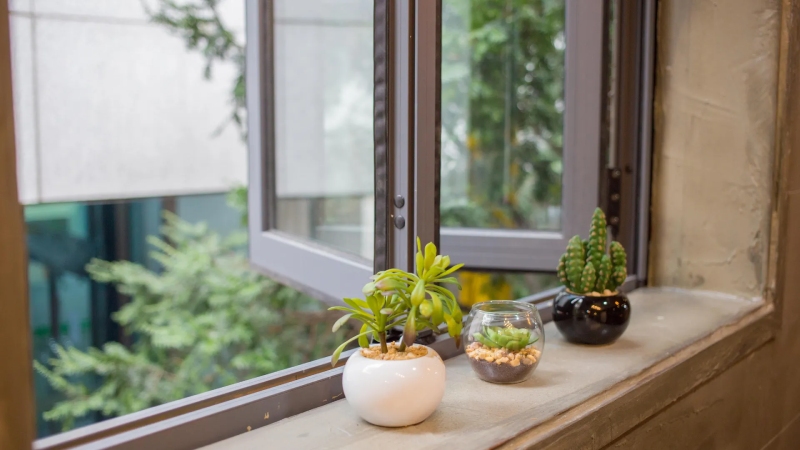 Opt for Reputable Brands, Avoid Untrusted Ones
Opt for Reputable Brands, Avoid Untrusted Ones
In conclusion, we have explored seven crucial considerations for installing windows in your home. From material and design choices to installation and maintenance, each factor significantly contributes to the efficiency and longevity of your windows. We hope that these insights will empower you to make informed decisions when choosing and installing windows in your home.
The Four Most Common Types of Glass Used in Modern Household Items
The home appliances market boasts an extensive range of products made from diverse materials. However, market research reveals that glassware dominates the industry. Glass, with its myriad types, offers a wide range of qualities and characteristics, thus influencing the overall quality of the products.






































